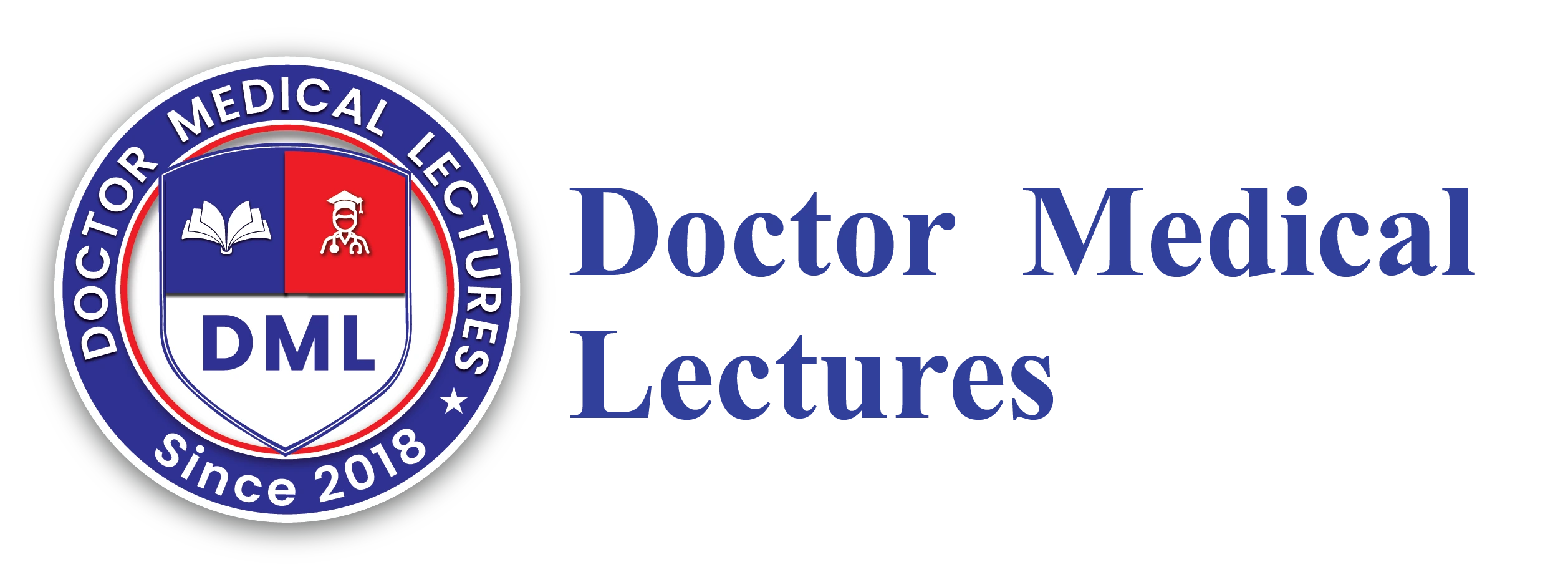Introduction
It is among the foundations of medical research today. It concentrates on studying the methods by which medicines affect our bodies as well as how they are used to treat a variety of illnesses, and how they affect the overall health of our bodies. In simple terms, Pharmacology is the term used to describe a study of what the drugs can affect the human body and how the body reacts to the effects of these drugs.

Although often misunderstood with the word “pharmacology,” although it is frequently confused with frequently confused with pharmacy, Pharmacology focuses more on research, study, development and discovery of the effects of drugs. It is the study of mechanism of action behind medicines and their therapeutic properties and adverse effects, toxic as well as interaction with other medication.
With the ever-growing demand for novel drugs along with the wide range of illnesses, the pharmacology field is always evolving, and offers amazing opportunities to advance your career and also playing essential roles in improving medical research.
The Historical Evolution of Pharmacology
It is a deep-rooted phenomenon within the history of the earlier times. The origins of this area can be traced in prehistoric times when herbal and natural remedies were employed for for therapeutic reasons.
Early Foundations
- The past was when Egyptians, Chinese, and Indians utilized rudimentary pharmacology using herbs and minerals.
- Greek medical doctor Hippocrates (460-370 BC) is considered to be the founder of modern-day medical science. Hippocrates also mentioned the use of drugs in his writings.
- The Roman physician Galen (130-200 AD) established the very first practice of preparation of drugs that later became well-known under the name in the form of “Galenic pharmacy. “
Scientific Advancements
- The late 19th century, a field of Pharmacology was first recognizedas a discipline in academia thanks to the discovery of the morphine quinine as well in a variety of other active compounds.
- Oswald Schmiedeberg, a German scientist is considered to be the genesis of modern field of pharmacy research. The 1870s were when his research began the first to link chemicalsubstances to physiological results.
Modern Era
- The 20th and 21st centuries we saw the development of antibiotics and biotechnology-based synthetic drugs and the creation of precise medical procedures.
- Pharmacology in the present is an extremely specialized and inter-disciplinary discipline that integrates the disciplines of biology, chemical physiology, chemistry and in genetics.
What Is Pharmacology?
Pharmacology is one discipline of science that studies the research of the impact of medication and other drugs on living organisms. It involves knowing the chemical properties of the drugs, how they’re absorbed, metabolized and the processof impact and positive and negative impacts.
Key Elements of Pharmacology:
- Drug Origin What is the process by which the drugs produced?.
- Chemical Compositions of Drugs What are substances that are chemically composed of.
- The Mechanism of Action – How the agent works with organs.
- Therapeutic Use – What conditions does this medication treats.
- side effects and Toxicity Acute and Toxicity: Negative or unintended adverse reactions of drugs.
- Chemical Interactions The ways in which the drugs react with different substances in the human body.
It’s vital, not just for the advancement of new drugsbut it’s also vital in ensuring the security and efficacy of existing medications.
Branches of Pharmacology
The area of pharmacology is huge, with a variety of different specializations focused on a different aspect of the effects of the drugs.
1. Clinical Pharmacology
Clinical Pharmacology studies the effects on human beings caused by medications. It focuses on studies, effectiveness of adverse reactions, in addition to the most efficient dosages. Clinical pharmacists operate in hospitals, research institutes and pharmaceutical firmsto make sure that the medicines they prescribe are efficient and safe for the patients.
2. Neuro pharmacology
This area focuses on how medications affect the brain and nervous system. It’s crucial to treat neurologicaldisorders including Parkinson epilepsy, Parkinson’s disease as well as depression and anxiety.
3. Psychopharmacology
The field studies the impact of medications on the way people behaveand cognitive processes. Psychopharmacologists investigate how medicines alter mood, perception and cognition. It is crucial in the treatment of disorders like bipolar disorder, as well as ADHD.
4. Pharma Kinetics
Pharmacokinetics investigates how the body’s response to an agent in the time.
- absorption How a substance gets absorbed into the bloodstream.
- distribution How it gets dispersed through your body.
- Metabolic Function The liver’s the principal organ in charge of this. Other organs help it break down.
- Extraction The process that happens in the body once it is rid of the chemical.
5. Pharmacodynamics
This section describes how the effects of substances on your body’s functions at level of the molecular as well as cellular. This includes interactions between drug receptors and their receptors and their impact on the physiological reaction.

6. Toxicology
Toxicology studies the study of negative or damaging reactions to medications as well as different chemicals. It assists in determining the appropriate doses, as well as diagnosing the signs of poisoning and in determining ways to treat it.
7. Pharmacologists
The new field of study examines how a person’s genetic makeup affects how they react to drugs. The concept of personalized medicine in which physicians tailor their treatment according to an specific genetic characteristics of the patient, is rooted in the notion of pharmacogenomics.
Applications of Pharmacology in Healthcare
The area of pharmacy has an enormous influence in the fields of modern medicine in all aspects.
- The process of drug Discovery and Development: Pharmacologists aid in discovering new medications as well as enhance existing ones through research and study in the clinical setting.
- vaccines and public health Pharmacologists are an integral part in preparing and evaluation of vaccines.
- The treatment of Cancer: Therapy targeted and chemotherapy drugs are the outcome of the most cutting-edge research in the field of pharmacology.
- The discipline of cardiology, as well as Endocrinology. Treatments for diabetes, high blood pressure and heart diseases is based on the pharmacological concept.
- Mental Health Antidepressants, depression stabilizers as well as antipsychotics are being studied within psychopharmacology.
Pharmacology and. Pharmacology: What’s the distinction?
While both relate to the usage of drugs both pharmacology and pharmacy are two different fields.
| Feature | Pharmacology | Pharmacy |
| Focus | Research into the effects of drugs in a rigorous way | The preparation and distribution of medicines |
| Work Environment | Researchers, universities Pharma companies, research labs | Hospitals, retail pharmacies, clinics |
| Education Path | BSc/MSc/PhD in Pharmacology | Doctor of Pharmacy (Pharm.D) or B.Pharm |
| Career Role | Scientist, researcher | A licensed pharmacist |
Educational Path: How to Study Pharmacology
To become a pharmacist, or be employed in the same field many students must go through the following steps:
1. Undergraduate Degree
- Degrees in bachelor’s studies pharmacology, biology biochemistry, or in other sciences of life.
- The main areas of study are organic chemistry and biology, along with microbiology and molecular biology.
2. Master’s Degree (Optional)
- The master’s (MSc) in Pharmacology offers an opportunity to focus on areas like neuropharmacology, clinical pharmacology, or.
3. Ph.D. or Research Path
- For career opportunities in research, academia or the development of new drugs, a Ph.D. is normally required.
- Ph.D. Holders typically end up being the lab’s principal investigators or faculty at universities.
4. Professional Certifications
- Accreditation by recognized institutions is beneficial and could increase your chances of securing an employment.
Top Universities Offering Pharmacology Degrees
International Institutions
-
- Harvard University (USA)
- The University of Oxford (UK)
- Its University of Toronto (Canada)
- University of Tokyo (Japan)
- Karolinska Institute (Sweden)
Universities in Pakistan
-
- University of Karachi
- Punjab University
-
- Dow University of Health Sciences
- Aga Khan University
- University of Lahore
Career Opportunities in Pharmacology
Pharmacology is an exciting area that offers a variety of career opportunities in the fields of healthcare, research as well as the pharmaceutical industry.
1. Pharmacologist
- The team is involved in the development of drugs and also the testing and evaluation.
- They might focus on toxicological, clinical or preclinical research.
2. Clinical Research Associate (CRA)
- Controls and supervises clinical trials for the purpose of testing the effectiveness of new drugs. tests.
3. Regulatory Affairs Specialist
- Be sure that the products are compliant with federal guidelines. Also, make sure that the FDA approves.
4. Medical Science Liaison (MSL)
- serves as a mediator between medical firms and pharmaceutical professionals who are responsible for disseminating research findings.
5. Toxicologist
- Examines the risks and security of chemicals such as pharmaceuticals, chemical substances, and pollutants in the environment.
6. Drug Safety Officer
- Monitoring the adverse reactions of medicines (pharmacovigilance) as well as managing the safety of the product.
7. Academic Roles
- You can be a lecturer, scientist or professor in universities and medical schools.
8. Government & NGO Roles
- Work with health departments of public and international health organizations to create the distribution of drug policies, policies or preventive.
Challenges in the Field of Pharmacology
The pharmacy field can be very lucrative, but there are challenges that must be overcome:
- Technology Rapid Improvements: Learning is required constantly to stay up-to-date.
- Ethical Concerns: The use of animals in clinical trials, as well as tests can cause ethical concerns.
- Complex Drug Interactions The increasing number of diseases and medications makes the analysis of drug interactions more challenging.
- cost is high for drug development: The process of identifying and approving a drug could be expensive and last for over 10 years.
Future Trends in Pharmacology
The medical field is fast altering due to technological advances and techniques that are changing how we view and create medications:
- Customized medicine Customizing drugs that are based on genetic makeup.
- Artificial Intelligence (AI): AI is used for the study of the effects of drugs and for prediction of results.
- CRISPR as well as gene editing These advances allow you to create targeted treatments which target genes.
- 3-D printers of drug labels: Potential for customized medications with precise doses.
- Nanomedicine: Using nanoparticles for targeted drug delivery.
Conclusion
Pharmacology is a fascinating discipline that is continually changing and is a mix of science, medicine, and science. It provides the ability to understand what drugs do and how they’re efficient and the ways they can increase their effectiveness. It doesn’t matter whether you’re trying to create new medicines be sure to making sure you are safe with your medications, or more informed about your prescription medication and how to use them more efficiently the field of pharmacology can equip you with the knowledge and skills to be able to significantly improve.
If you’re passionate about the fields of health and science and the pursuit of advancement, then a job in the field of pharmacology might provide you with the opportunity to make a significant contribution to global health and well-being for the patients.
Frequently Asked Question About Pharmacology
1. Are Pharmacology a difficult field?
It is certainly difficult because it combines the sciences, biology, maths and biology but it’s manageable if you continue to do your studies and a constant interest.
Second question. What’s the primary distinction between pharmacy and pharmacology?
The expression “pharmacology” refers to the research of the ways in which medications function, and pharmacy refers to the procedure of creating and dispensing medications.
Question 3: Do I continue to study Pharmacology after my FSC (Pre-Medical) in Pakistan?
If they are holders of FSC (Pre-Medical) can be eligible for consideration to pursue the BS in Pharmacology or related disciplines across different schools.
4. Could pharmacology make a great option for a career?
absolutely. There are possibilities for pharma and research and the health care sector for public, in addition to academia that are well-paying and offer potential for development.
5. What’s the average time to become a Pharmacologist?
It generally requires four years of study to earn the bachelor’s degree. You will need another 2-5 years to earn an advanced master’s or Ph.D. depending on the goals of your professional.
